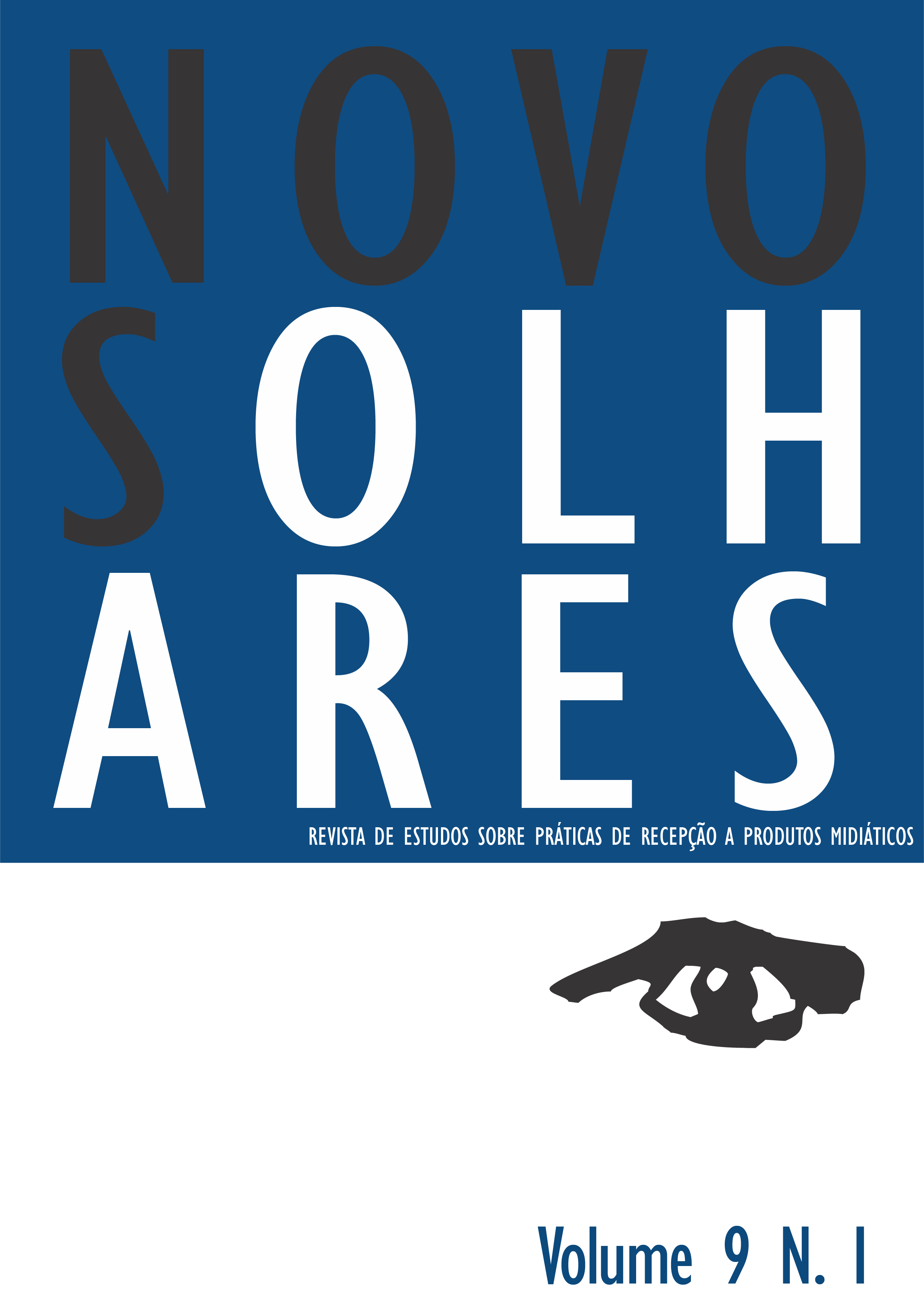Shanghai gangster films and the politics of change
a study of Lord of the East China Sea (1993) and The Last Tycoon (2012)
DOI:
https://doi.org/10.11606/issn.2238-7714.no.2020.172000Palavras-chave:
Filme de Gângster, Indústria Cinematográfica de Hong Kong, Globalização, Xangai, Du YueshengResumo
Neste artigo, por meio de uma leitura textual muito aproximada, mostrarei as diferenças ideológicas entre dois filmes baseados na vida do gangster de Xangai Du Yuesheng (1888, Pudong - 1951, Hong Kong) através de uma análise formal e narrativa. Du já era uma celebridade em sua época na era republicana e ainda é uma figura controversa na Grande China. No entanto, existem apenas dois filmes baseados na vida do chefão do ópio da Confissão Francesa, a recente coprodução de Hong Kong/RPC The Last Tycoon (Da Shang Hai, Wong Jing, 2012) e as épicas duas partes Senhor do Mar da China Oriental I e II (Shang Hai huang di zhi: Sui yue feng yun e Shang Hai huang di zhi: Xiong ba tia xia, Hong Kong, Poon Man-kit 1993). Mostro como esses filmes refletem as mudanças político-econômicas de Hong Kong e da China, concentrando-se na representação da classe social e do sujeito, na representação da migração e imigração interna e no nacionalismo. Os filmes serão discutidos em relação às mudanças na indústria cinematográfica de Hong Kong, no cinema chinês e mundial e no gênero de gângsteres transnacionais, mostrando como os cinemas locais e globais afetaram esses filmes.
Downloads
Referências
BUCK-MORSS, S. Dreamworld and Catastrophe, The Passing of Mass Utopia in the East and West. Cambridge: MIT Press, 2000.
GOODMAN, D. S. G. Class in Contemporary China. Cambridge: Polity Press, 2014.
INGLE, Z. Temptress Moon. In: BERRA, J.; JU, W. (org.) World Film Locations: Shanghai. Bristol: Intellect Press, 2014, 40-41.
KAMINSKY, S. M. Little Caesar and its Role in the Gangster Film Genre. In: SILVER, A.; URSINI, J. (org.) The Gangster Film Reader. Pompton Plains: Limelight Editions, 2007, pp. 47-63.
LAM, D. The Cinema of Development: Class Factors and Global Trends in Hong Kong Cinema. 2013. Tese (Doutorado), Hong Kong University, 2013.
MARTIN, B. G. The Shanghai Green Gang, Politics and Organized Crime 1919-1937. Berkeley: University of California Press, 1996.
MILLER, T. China's Urban Billion, The Story About the Biggest Human Migration in History. Londres: Zed Books, 2012.
ONG, A. Flexible Citizenship, The Cultural Logics of Transnationality. Durham: Duke University Press, 1999.
FENG, W.; YANG, S. Communist Resilience, Institutional Adaptations in Post-Tiananmen China. In: BANDELJ, N.; SOLINGER, D. J. (org.) Socialism Vanquished, Socialism Challanged, Eastern Europe and China, 1989-2009. Nova York: Oxford University Press, 2012, pp. 219-237.
ROFEL, L. Desiring China: Experiments in Neoliberalism, Sexuality and Public Culture. Durham: Duke University Press, 2007.
SZETO, M. M.; Chen, Y. Mainlandization and Neoliberalism with Postcolonial and Chinese Characteristics, Challenges for the Hong Kong Film Industry. In: KAPUR, J.; WAGNER, K. B. (org.) Neoliberalism and Global Cinema, Capital, Culture and Marxist Critique. Nova York: Routledge, 2011, pp. 239-260.
SZETO, M. M.; Chen, Y. To Work or Not to Work: the dilemma of Hong Kong Film Labor in the Age of mainlandization. Jump Cut, vol. 55, 2013. Disponível em: http://ejumpcut.org/archive/jc55.2013/SzetoChenHongKong/
TEO, S. Hong Kong Cinema: The Extra Dimensions. Londres: BFI Publishing, 2002.
TEO, S. The Asian Cinema Experience. Nova York: Routledge, 2013.
WARSHOW, R. The Gangster as a Tragic Hero. In: SILVER, A.; URSINI, J. (org.) The Gangster Film Reader. Pompton Plains: Limelight Editions, 2007, pp. 11-16.
WILLIAMS, T. The Hong Kong Gangster Film. In: SILVER, A.; URSINI, J. (org.) The Gangster Film Reader. Pompton Plains: Limelight Editions, 2007, pp. 356-379.
YAU, E. Border Crossing: Mainland China's Presence in Hong Kong Cinema. In: BROWNE, N. et al. (org.) New Chinese Cinemas, Forms, Identities, Politics. Nova York: Cambridge University Press, 1994, pp. 180-201.
XIAO, Y. “Leitmotif”: State, Market and Postsocialist Film Industry under Neoliberal Globalization. In: KAPUR, J.; WAGNER, K. B. (org.) Neoliberalism and Global Cinema, Capital, Culture and Marxist Critique. Nova York: Routledge, 2011, pp. 157-179.
Downloads
Publicado
Edição
Seção
Licença
Proposta de Aviso de Direito Autoral Creative Commons
1. Proposta de Política para Periódicos de Acesso Livre
Autores que publicam nesta revista concordam com os seguintes termos:
- Autores mantém os direitos autorais e concedem à revista o direito de primeira publicação, com o trabalho simultaneamente licenciado sob a Licença Creative Commons Attribution CC Attribution-NonCommercial-NoDerivatives 4.0, que permite o compartilhamento do trabalho com reconhecimento da autoria e publicação inicial nesta revista.
- Autores têm autorização para assumir contratos adicionais separadamente, para distribuição não-exclusiva da versão do trabalho publicada nesta revista (ex.: publicar em repositório institucional ou como capítulo de livro), com reconhecimento de autoria e publicação inicial nesta revista.
- Autores têm permissão e são estimulados a publicar e distribuir seu trabalho online (ex.: em repositórios institucionais ou na sua página pessoal) a qualquer ponto antes ou durante o processo editorial, já que isso pode gerar alterações produtivas, bem como aumentar o impacto e a citação do trabalho publicado.



